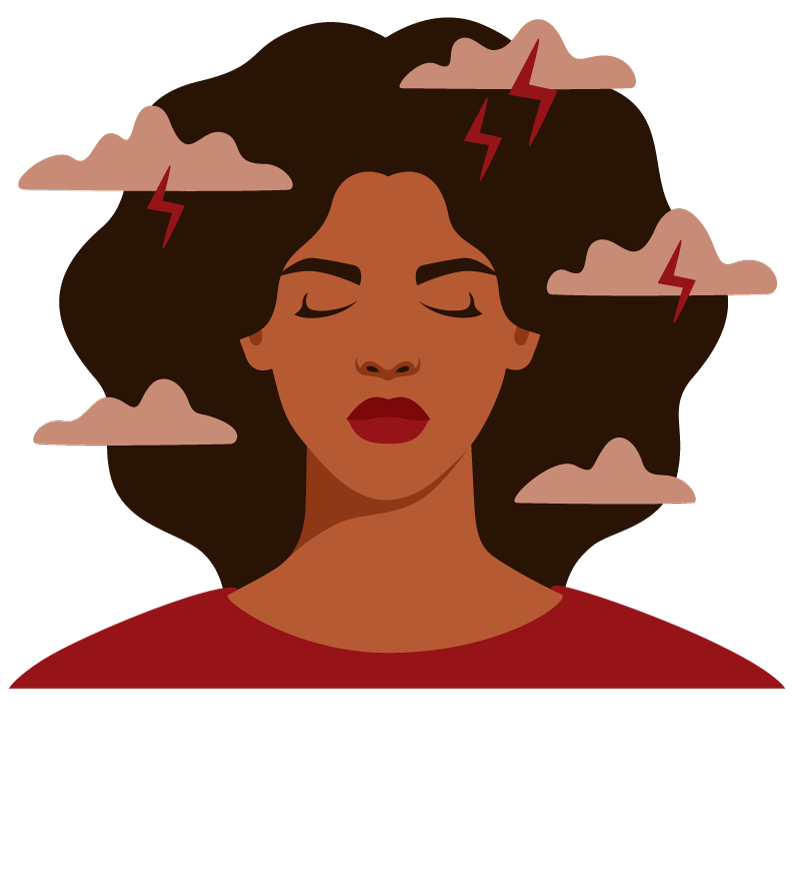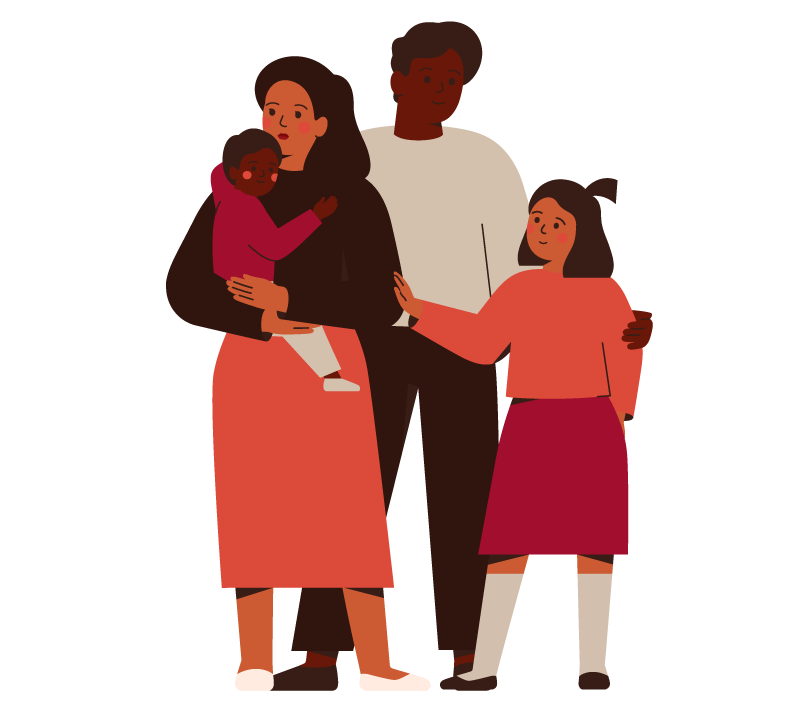Female circumcision is dangerous for the health of girls and women.

The consequences can last a lifetime, are serious and are never positive. Not all girls and women who have been circumcised have these problems. Whether and which health problems occur depends, among other things, on the type of circumcision and how it was performed.
All girls have rights!
Your body is yours.
No one has the right to harm it, not even your parents.
During pregnancy and birth, women receive medical care from a gynecologist and/or a midwife. Female circumcision can lead to problems during pregnancy and birth. The gynecologist can also help with childbirth through minor interventions, for example by treating scar tissue. This also allows the menstrual blood to flow more easily and improves sexuality. In order for natural childbirth to be possible, an infibulation must be cut open. After the birth the doctor can treat all injuries. However, it is strictly forbidden to infibulate (sew closed) the woman again.
The birth can result not only in complications for the mother, but also for the unborn child. Therefore, it is important that you inform yourself early.
The birth often goes better when women are well informed about their body, pregnancy and birth. Every girl and woman has the right to know and understand what is happening around them and why something is being done. Contact a counseling center to get information, support and names of recommended doctors.
If you feel pain or fear during sexual intercourse, or are insecure, do not let yourself be pressured and do not put the blame on yourself. It can be due to circumcision, and many girls and women have these problems. Contact a gynecologist or a counseling center.
Some girls and women are afraid that the maidenhead will tear or be removed during their first time having sexual intercourse. That’s not true. The maidenhead (also called the hymen) is a piece of tissue that surrounds the vagina just behind the entrance. It’s not closed. For example, during menstruation the menstrual blood can flow out freely. The maidenhead will not be injured by sports or dancing. It also cannot be broken during an examination by a gynecologist. Some girls are born without a maidenhead, and many have an intact maidenhead despite sexual contact. For some women, their first time having vaginal sexual intercourse results in an injury to the maidenhead and bleeding; for others, it does not. Medically, it is almost impossible to determine whether a woman has already had vaginal intercourse based on the maidenhead.
Even if there are small injuries to the maidenhead, these heal quickly. No scar tissue is formed in the process. This is important because it means that no one, not even a gynecologist, can tell whether you have had sex or not. Even after childbirth, the maidenhead can still look the same as before.
Sometimes girls and women also have mental problems because of circumcision. It is a painful process, often violent and without warning. Sadness or anxiety can also return long after, for example during birth, a medical examination or sexual intercourse.
A circumcision can never be completely reversed. But the physical and mental problems can be treated to make everyday life easier. Every girl and every woman has a right to this!
Female circumcision can have consequences for boys and men, for example if their wife, daughter or sister is suffering or dying, or if sexual or relationship problems arise in the partnership.
Female circumcision is considered a “women’s matter” because it is usually organized by women. However, the social pressure that forces people to perform female circumcision comes from the entire community and thus also from boys and men. They are part of the problem if, for example, they refuse to marry an uncircumcised woman or if they simply do not pay attention to the subject.
Boys and men have an important role and great responsibility in ending female circumcision. Their task is to protect girls and to advocate for their health.

There are doctors in Germany who offer reconstructive surgery by which the clitoris and the lips are restored. With surgical reconstruction of the clitoris and the lips, girls and women get the opportunity to experience painless and pleasurable sexuality.
Contact a counseling center if you have questions or need help.
Dr. Dan mon o’Dey
Dr. Uwe von Fritschen
www.dfc-waldfriede.de/das-center/behandlungsangebot
Dr. Adili
fim-frauenrecht.de/wp-content/uploads/2024/12/2024_12_FGM_C_Projekt.pdf
Dr. En Nosse / Dr. Wohlklang
www.ukgm.de/ugm_2/deu/ugi_gyn/62105.html
Contact a counseling center if you have questions or need help.
The general practitioner is also called the family doctor. In case of health problems, the general practitioner is usually the first person to contact. If necessary, he or she issues a referral to the right specialist.
Gynecologists only treat women and girls. They examine and treat the female reproductive organs and care for women during pregnancy.
“Pediatrician” is the technical term for a doctor who treats children. Pediatricians regularly examine babies and children and treat the typical childhood diseases.
The urologist treats the kidneys, adrenal glands, bladder, ureter and urethra of men and women. One can also visit a urologist in case of a bladder infection (cystitis).
The general practitioner is also called the family doctor. In case of health problems, the general practitioner is usually the first person to contact. If necessary, he or she issues a referral to the right specialist.
Gynecologists only treat women and girls. They examine and treat the female reproductive organs and care for women during pregnancy.
“Pediatrician” is the technical term for a doctor who treats children. Pediatricians regularly examine babies and children and treat the typical childhood diseases.
The urologist treats the kidneys, adrenal glands, bladder, ureter and urethra of men and women. One can also visit a urologist in case of a bladder infection (cystitis).